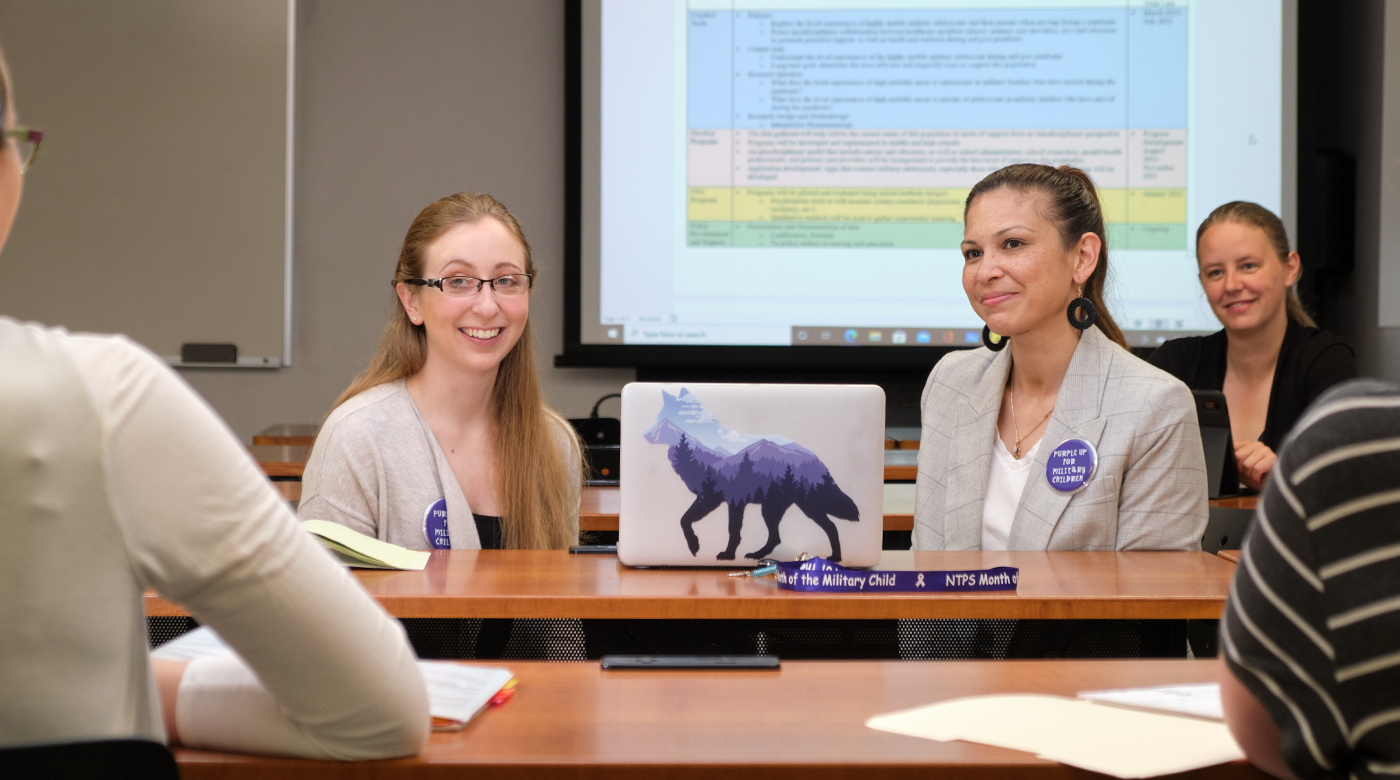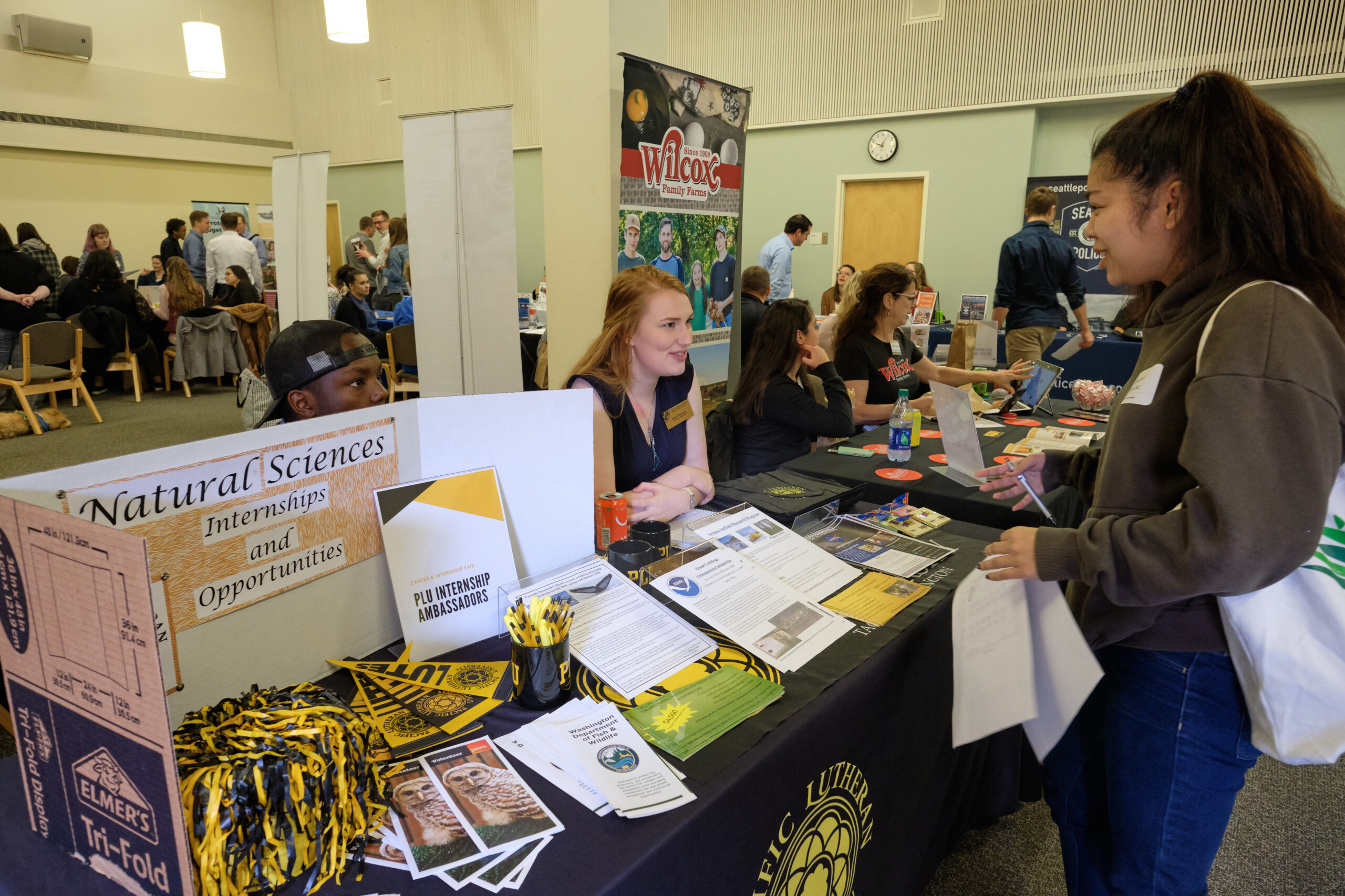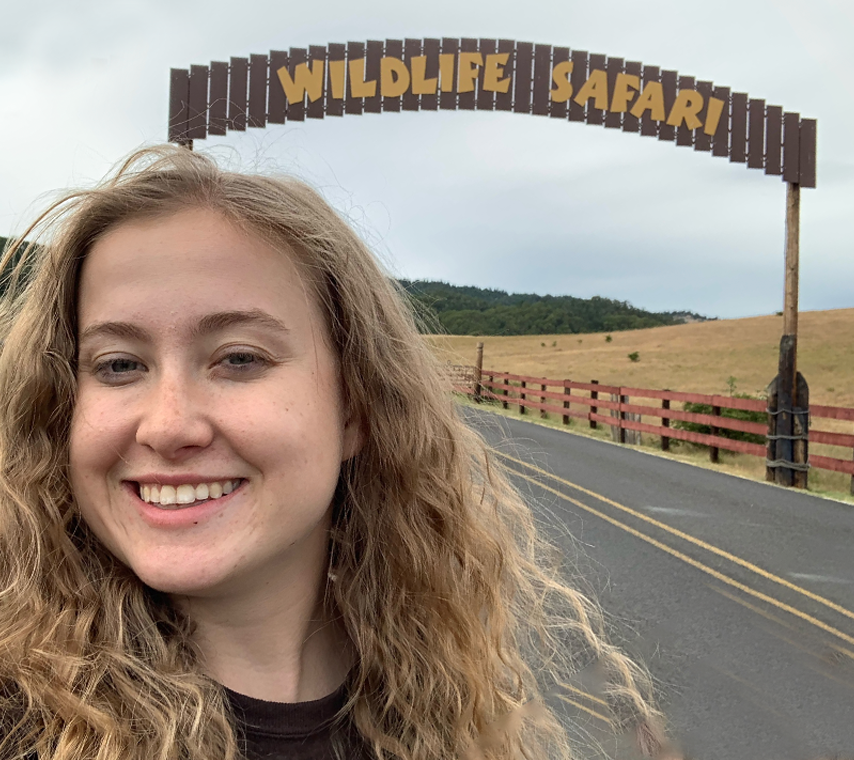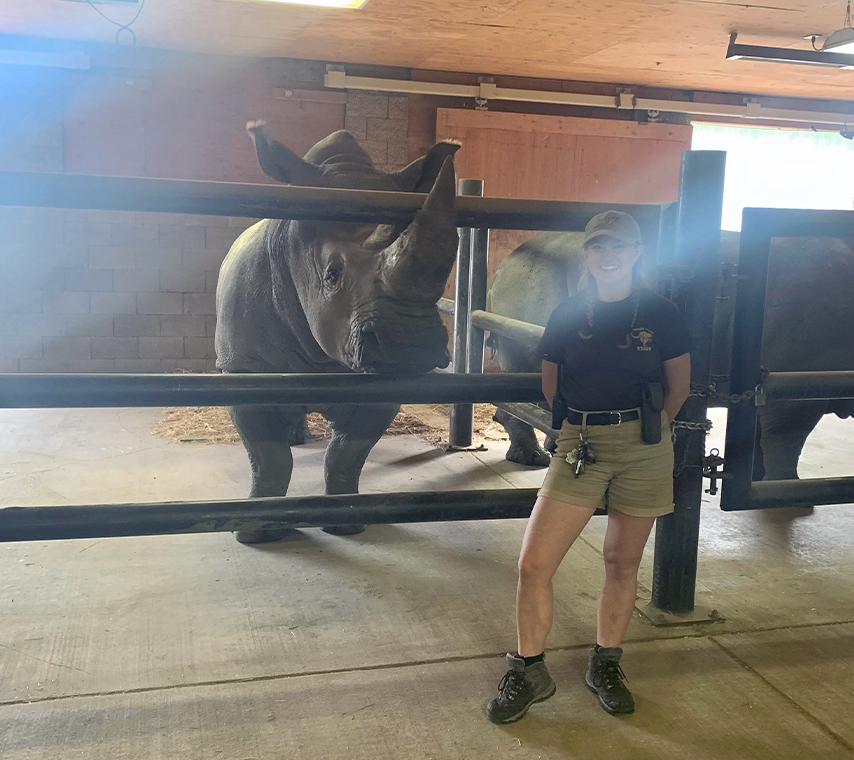PLU launches Internship Fund to create equitable opportunities for students

Image: Erica Palmer ’21, left, confers with Prof. Jennifer Thomas regarding her project looking at the effects of mobility of children in military families (Photo/John Froschauer)
By Veronica Craker
PLU Marketing and Communications
During her senior year at PLU, Chloe Willburn ‘21 wanted to intern with the Washington State Department of Children, Youth, and Families. As a social work major, Willburn believed that the experience gained from working alongside DCYF would benefit not only her but her future clients. But the internship didn’t pay enough to cover costs associated with the training.
Normally students in Willburn’s situation would be forced to pass up an internship opportunity like this. Fortunately for Willburn, PLU was able to secure donations to provide her, and others like her, with a scholarship from its Internship Fund.
“This fund allowed me to drive every day to the office to be a part of the department,” she said. “The fund also helped with gas money to drive to work in person with children and their parents.”
The scholarship is an extension of the Student Ambassador Program, an initiative devised in 2019 by an innovation studies class led by PLU professor Mike Halvorson. The challenge from Halvorson was simple. Find something on campus you care about and improve it.
This simple assignment grew into a partnership of students, donors and PLU’s advancement and alumni team, resulting in scholarships supporting more than three dozen students as they pursue internships.
“The Student Ambassador Program originated with our own students’ experiences of trying to find internships,” Halvorson said. “They conducted interviews, met with PLU stakeholders, and studied how internships were offered at other universities. The result was a new process that better fit the needs of PLU staff and students.”
Internships can give new graduates a competitive advantage when entering the workforce, but research from 2019, shows that 43 percent of internships at for-profit companies often go unpaid. This creates an advantage for students from privileged backgrounds as they are more likely to accept these positions while getting financial assistance from family. Meanwhile, students from lower-income communities can find experiences like these far out of reach.
With the students’ recommendation, PLU launched the Student Ambassador Program to educate the university community on the importance of internships and how inequities to the current internship system can have major consequences when students enter the job market and well into their careers. With help from PLU’s Division of University Relations, donors joined the effort, stepping forward to provide scholarships for students, like Willburn, who might otherwise have to pass on low-paying or unpaid internship opportunities.
Alumni Step Up
In order for all students to have equal access to internships, outside financial support needed to be secured. Fortunately, assistance came from longtime donors Dave and Kendra Uhler ’99 and Jim Fredricksen ’78, who each helped fund the program and care deeply about equity, access and innovation.
“Many internships still come with extra expenses like travel or housing to take full advantage of the programs. It is our hope that the internship scholarship funds can help make these types of experiences more approachable and affordable to students,” Dave Uhler said.
Fredricksen says he jumped at the opportunity to break down barriers keeping students from pursuing internships that might not be financially viable. He credits his longtime relationship with Bill Crooks, who taught in the School of Business, for showing him how connections with students and alumni could be a force for good.
“Bill was good at networking. He was good at connecting with the community, he was part of the Chamber of Commerce —he was plugged in,” Fredricksen said. “I was 25 when I worked for him and we hit it off. He also helped kids with connections in the community when it came time to find jobs. He could connect with multiple age groups.”
As he and his wife, Jane, have become involved in the internship fund through the establishment of the J&J Fredricksen fund in memory of Bill Crooks, Jim has seen firsthand how the program has given students a level playing field to pursue careers in their chosen industry.
“One student needed internet capability to be able to do his internship using Zoom and to have proper security and internet access,” Fredricksen said. “If my small investment can help someone or bridge the gap for three months or five months — then that’s a success.”
Promoting and Funding Internships
Thanks to the program laid out by Halvorson’s innovation class, in spring 2021 the Office of Alumni & Student Connections hired seven student ambassadors to promote the value of completing an internship. In February the offices began promoting the PLU Internship Fund to students. By the end of the semester, PLU was able to support 37 students with their internships. Nearly 38 percent of awardees were students of color and more than 81 percent were women. The majority of internships — more than 85 percent — took place in the South Sound.
Nursing major Erica Palmer ‘21 was able to offset costs as she worked as an intern on an interpretive phenomenological study with the PLU Nursing Department, analyzing the impact of the COVID-19 pandemic on the highly mobile military child.
“Without the funding, I would not have been able to participate in the project at all,” Palmer said. “This experience was so valuable to me and my future career and I am very grateful for the funding that allowed me to participate.”
Funds also benefited biology major McKenzie Meyer ‘22, who is using her scholarship to intern at Wildlife Safari park in Winston, Oregon.
“As an intern, I work alongside the keepers as we go about our daily tasks including feeding, cleaning, training, and leading encounters with some of our animals,” Meyer says. “I also have the opportunity to cross-train with other departments including with the veterinarians so I am getting a first-hand look at what a zoo vet does! I am absolutely loving my time here and am so thankful for this scholarship helping me to pursue my dreams.”
Data is still being collected on the results of the program. The COVID-19 pandemic created unique challenges to internships but also created opportunities allowing many students the ability to intern virtually. Experiences like these are the result of groups —on and off campus —working together to make systematic change that results in more equitable and inclusive opportunities for students – ones that will impact the trajectory of the students’ lives.





